The phone call came during Thanksgiving break of Brody Savoie’s Freshman year at Western New England University, the college he chose to attend, in part, because he could continue playing the sport around which his entire world up until this point had revolved—lacrosse.
On the other end of the line was a Marine recruiter who offered Savoie the opportunity to train as a Marine while he remained in school. Savoie had a friend and an uncle in the Marines, and he saw the discipline and growth each of them made through their military careers. Plus, the recruiter assured Savoie, chances of deployment were very slim. An 18-year-old Freshman college lacrosse player before Thanksgiving break, Savoie returned to WNEU a full-on Marine recruit.
 Savoie completed training between his Freshman and Sophomore years and his education and lacrosse career were virtually unaffected. Then, in between his Junior and Senior years, Savoie learned he was being deployed to the Al Anbar province in Iraq. Then, in between his Junior and Senior years, Savoie volunteered for deployment. He was sent to the Al Anbar province in Iraq, and lacrosse was put on hold.
Savoie completed training between his Freshman and Sophomore years and his education and lacrosse career were virtually unaffected. Then, in between his Junior and Senior years, Savoie learned he was being deployed to the Al Anbar province in Iraq. Then, in between his Junior and Senior years, Savoie volunteered for deployment. He was sent to the Al Anbar province in Iraq, and lacrosse was put on hold.
“It was the end of my world to leave my college lacrosse season,” he says, “I had someone mail me my lacrosse stick, that’s how important it was.”
On the base, Savoie had quite a bit of free time, and he’d spend it tossing his lacrosse ball against a 20-foot concrete barrier to pass the time. Looking back at his role as a convoy gunner, Savoie says he had to grow up fast. Inside a fortified base, he says, there is a certain perception of safety; but outside the wire, awareness is heightened.
“You’ll spend a night or two on the frontlines and nothing will happen; complacency will set in. Then something happens, you react, and then you eventually get numb to the sensation of danger.”
It’s almost easy to understand why, when Savoie returned home and reunited to his lacrosse team (on September 11th, ironically), he was a different person.
“I was mean. I was a tyrant because lacrosse was so important to me. When freshmen didn’t want to wake up and go lift at 8am, that really bothered me,” he says.
The different types of stresses and numbness to danger had changed his reality, but Savoie’s team had experienced none of that. They had no idea what he’d been through, and he wasn’t able to explain it to them in terms they could understand.
At the end of his Junior season, with many of the talented Seniors on the team graduating, Savoie came to the realization that, because of what he’d experienced, he had a unique opportunity to grow as a leader. He knew he needed to channel his emotions and frustrations or the team would never be successful, especially with their top talent moving on.
 Savoie focused his energy on improving the team, and, with the grit and determination he picked up in the Marines, he led the Western New England Golden Bears to the Elite 8 tournament for the second time in as many years. His Senior year turned out to be one of the best in his lacrosse career.
Savoie focused his energy on improving the team, and, with the grit and determination he picked up in the Marines, he led the Western New England Golden Bears to the Elite 8 tournament for the second time in as many years. His Senior year turned out to be one of the best in his lacrosse career.
“I had lacrosse to heal me; it was a great release for a college kid,” he says.
And then he graduated, in 2008, at the height of the recession.
“I was in a catch-22; I had just graduated, felt like I was on top of the world after my lacrosse season. And yet I was at the lowest part of my life. I moved with my girlfriend to Connecticut and lost my network. I couldn’t get a job anywhere. Dunkin’ Donuts wouldn’t even hire me,” Savoie says.
Feeling completely lost and without any job prospects, Savoie volunteered for deployment in June 2009. Just days later, he got a call from Adam Lavino, a hiring manager at Cintas. He wanted Savoie to come in for an interview next week.
Savoie was beyond excited, but he knew he’d be receiving his deployment orders in the next few months. So when Lavino offered him the job, and Savoie accepted, it was bittersweet. He had good money coming in, and he was happy, but he felt he had to tell Lavino about his upcoming deployment to Afghanistan. To his surprise, though, Lavino was more than understanding.
“He told me, ‘We knew this was a risk, but it was a risk we were willing to take on you. Your job will be here when you get back.’”
***
Savoie returned from Afghanistan with an appreciation for life, but the knowledge that he had experienced some heavy emotional and mental strain. Not only that, but he had been moved to a Cintas location in upstate New York.
“In my first deployment, I had lacrosse to heal me. I got to release that anger through the sport. After my second deployment, though, I was moved to New York and lost my team in Connecticut. I started drinking too much, taking medication, and I couldn’t run a mile. I had this moment where I told myself, ‘You’re an all-American athlete, and now you’re acting like a degenerate, what are you doing?’”
Thanks to an inspirational talk at an annual meeting, and some supportive co-workers, Savoie began running—a sport he despised. He challenged himself with a goal of running three 5K races in a year, but eventually exceeded his own expectations and signed up for a half-marathon. It was challenging, he says, because he saw every step he took as an opportunity to quit and give up.
After hours of training and keeping himself motivated, Savoie finished a half marathon. To his own surprise, he immediately signed up for a full marathon. In the process of training for that, he bought a bike and took up swimming to alleviate some of the pain in his knees he was getting from running. Soon enough, he had signed up himself up for a Half Ironman.
 Savoie found that the more he trained and put his energy towards these different endurance sports, the better he performed at work. Thanks to his newfound love of distance running, biking, and swimming, he’s been able to channel that frustration into something positive.
Savoie found that the more he trained and put his energy towards these different endurance sports, the better he performed at work. Thanks to his newfound love of distance running, biking, and swimming, he’s been able to channel that frustration into something positive.
A little more than a year ago, Savoie completed his first full Ironman at Lake Placid. And the picture he had taken of him crossing the finish line? He sent it out to all the people who helped him heal after his second deployment. Through sport—both lacrosse and endurance races—Savoie has been able to channel his energy in a productive way, but, he says, “I keep remembering the journey and where I came from.”
“The thrill of playing a sports game at a high level in college replaces the high you get from being overseas,” he says. The same has been true of long distance races, and, in Savoie’s case, both have been essential in shaping him into the person he is today.















